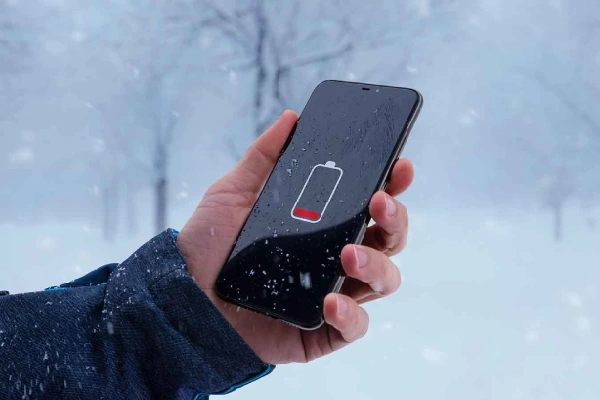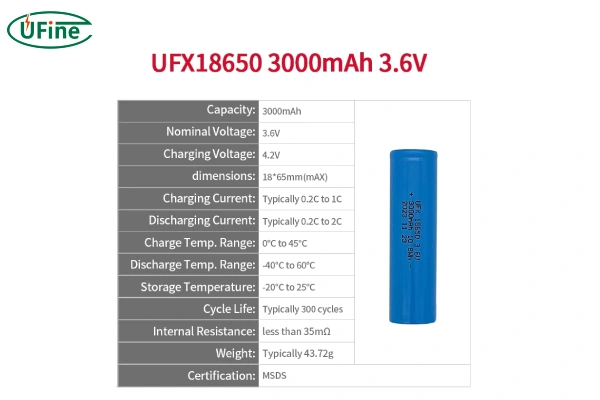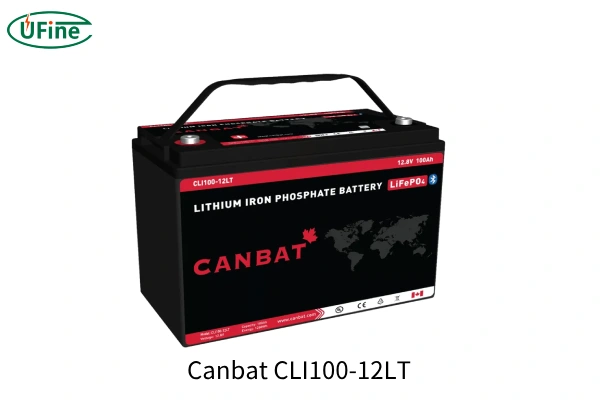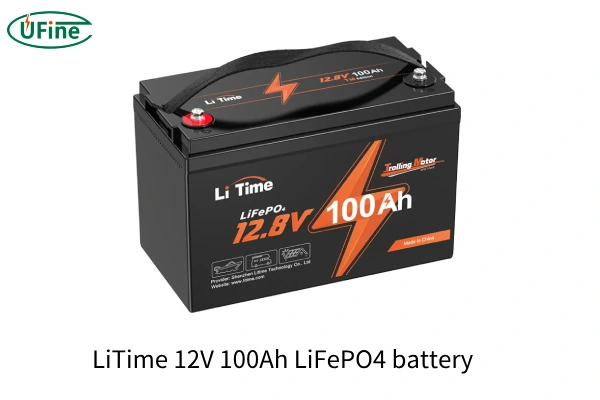Part 1. Understand the impact of cold weather on lithium batteries
In cold weather, the performance of lithium batteries may decrease due to factors such as increased internal resistance, slow chemical reactions, and reduced capacity. Electrical devices powered by lithium batteries may exhibit slower operation, reduced power output, and shorter battery life.
And lithium battery voltage changes in lithium batteries can cause equipment to operate erratically, shut down unexpectedly, or display inaccurate readings, especially in sensitive electronic equipment. It may also cause delays in starting the device and require frequent battery replacement or recharging. This may seriously affect the stability and reliability of electrical equipment.
Cold weather can have a significant impact on lithium batteries. Cold weather can significantly impact the performance and lifespan of lithium-ion batteries due to several factors:
- Reduced Capacity
- Increased Internal Resistance
- Slower Chemical Reactions
- Risk of Damage
- Impact on Lifespan
Part 2. Key features to buy lithium batteries for cold weather
When selecting lithium batteries for cold weather applications, it’s essential to consider several key features to ensure optimal performance and reliability in low-temperature environments. Here are some important features to look for:
1. Extended Temperature Range
Look for lithium batteries specifically designed with an extended temperature range for cold weather use. These batteries are engineered to perform reliably in low temperatures without significant capacity or power output loss.
2. Low-Temperature Performance
Ensure that the lithium batteries have excellent low-temperature performance. They should maintain a stable voltage and deliver sufficient power even in freezing temperatures. Batteries with optimized chemistry and construction for cold weather conditions are better equipped to handle the challenges of low temperatures.
3. Cold-Start Capability
Cold-start capability refers to the battery’s ability to start and operate devices in cold conditions. Look for lithium batteries with high cold-cranking amps (CCA) or cold-cranking current (CCC) ratings, as these indicate their ability to deliver a burst of power to start equipment in cold weather.
4. Capacity Retention
Check for lithium batteries that can retain a significant portion of their capacity in cold temperatures. Batteries with good capacity retention will provide longer runtimes and consistent performance in cold weather, ensuring your devices can operate for extended periods without frequent recharging or replacement.
5. Safety Features
Safety is crucial when using lithium batteries in any environment, including cold weather. Look for batteries with built-in safety features such as overcharge protection, thermal management systems, and short-circuit protection. These features help safeguard the battery and the equipment from potential risks and ensure reliable operation even in challenging conditions.
6. Durability and Reliability
Select lithium batteries known for their durability and reliability in harsh environmental conditions, including cold weather. Look for batteries with robust construction, high-quality materials, and proven performance in cold temperature testing to ensure long-term reliability and performance consistency.
7. Compatibility
Ensure that the lithium batteries you choose are compatible with the specific devices or equipment they will power in cold weather conditions. Verify compatibility with voltage requirements, size constraints, and any other relevant specifications to ensure seamless integration and optimal performance.
Part 3. Best lithium batteries for cold weather
1. Ufine UFX0707-14 3.6 V 3000mAh 18650 Battery
Ufine 3.6 V 3000mAh 18650 Battery is a lithium battery specially designed for low temperatures. The battery can discharge at temperatures as low as -40°C.
Contact us now to get a quote!
This battery can withstand over 1,000 charge cycles when fully discharged at 100% and even more if partially discharged. 18650 batteries have a long shelf life and can be stored in any state of charge for up to 2 years without fear of degradation. This makes them ideal for use in seasonal equipment as they require no long-term maintenance.
2. Canbat CLI100-12LT
The Canbat CLI100-12LT is a 12V 100Ah lithium battery designed for cold temperatures. The Battery features advanced LiFePO4 technology, M8 terminals, a robust BMS, and a built-in automatic heater. The battery can be charged at temperatures below -20°C (-4°F).
It Can also be connected in series up to 4 units of the same model to create a 24V 100Ah, 36V 100Ah, or even 48V 100Ah battery.
Parameter:
- Part Number: CLI100-12LT
- Length: 304.8 mm (12 inches)
- Width: 165.1 mm (6.5 inches)
- Battery Height: 209 mm (8.25 inches)
- Approx Weight: 12.70kg (28 lbs)
- Voltage: 12.8V
- Capacity: 100Ah
3. LiTime 12V 100Ah LiFePO4 battery
LiTime 12V 100Ah LiFePO4 battery
- Low-temperature charging cutoff protection, preventing charging below 0°C to protect the battery and extend its life.
- Features robust 20+ layer BMS protection with enhanced moisture, dust and salt spray resistance for reliability in humid environments.
- Automatic Overload Protection and Recovery – No User Intervention Required
- EV Grade-A LiFePO4 cell only, 4000+ cycles at 100% DOD
- Ultimate replacement for lead-acid: 1/5 the weight, same power (V.S. a 12V 200Ah lead acid)
- L13*W6.77*H8.43 inch, Equivalent to group 31 batteries
- Increased instantaneous load capacity for better control of your trolling motor
- Upgraded shock resistance for worry-free boating, even in rough waters
- Flexible 3 Recharging Ways (LiFePO4 charger/Solar/Generator)
- Expandable up to 4S4P for a 48V 400Ah system
4. RB100-LT 12V 100Ah Cold Weather Deep Cycle Lithium Battery
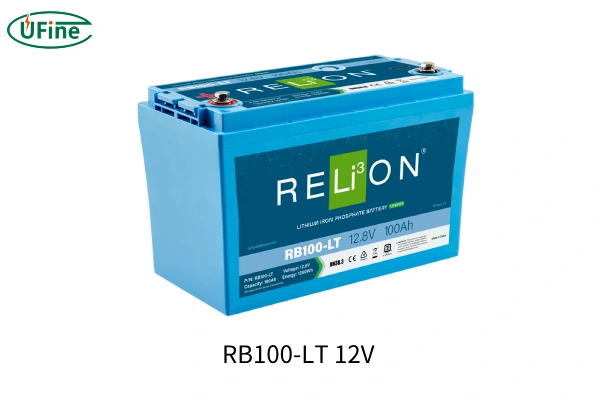
The RB100-LT is an ideal choice for use in RVs, off-grid solar, electric vehicles, and in any application where charging in colder temperatures is necessary. RELiON’s Low-Temperature Series lithium iron phosphate batteries can safely charge at temperatures down to -20°C (-4°F) using a standard charger.
Part 4. Maintenance tips to keep your lithium battery winter ready
Maintaining lithium batteries to ensure they are winter-ready involves a combination of proactive measures to preserve battery health and performance in cold weather conditions.
Here are some maintenance tips:
1. Store the battery properly
If you’re not using it during winter, store it in a cool, dry place away from direct sunlight and extreme temperatures.
2. Charge the battery before storage
Before storing it for an extended period, make sure it’s fully charged. A fully charged battery is less prone to damage from cold temperatures and self-discharge.
3. Monitor the battery level
If you’re using the battery during winter, pay attention to its charge level. Avoid letting the battery discharge completely, as this can lead to capacity loss and potential damage. Recharge the battery before it reaches a critically low level.
4. Keep the battery warm
Cold temperatures can reduce the battery’s performance. If possible, keep the battery in a warm environment when not in use. For example, store it in an insulated bag or keep it inside your home instead of leaving it in a vehicle or unheated area.
5. Avoid rapid temperature changes
Minimize exposing the battery to rapid temperature fluctuations. Sudden temperature changes can cause condensation, which can harm the battery. Allow the battery to acclimate to ambient temperatures gradually.
6. Protect the battery from the extreme cold
If you’re using the battery outdoors in freezing temperatures, consider insulating covers or battery wraps specifically designed for cold weather. These accessories can help maintain the battery’s temperature and improve its performance.
7. Charge the battery at room temperature
When charging the battery, do so at room temperature or slightly above. Avoid charging the battery in extremely cold conditions.
8. Avoid overheating the battery
While keeping the battery warm is important, ensure it doesn’t get too hot. Excessive heat can also harm lithium batteries.
9. Regularly inspect the battery
Periodically check the battery for any signs of damage, such as physical deformities, leaks, or unusual behavior.
10. Follow the manufacturer’s guidelines
Always refer to the specific manufacturer’s recommendations and guidelines for maintaining and using your lithium battery, as different battery brands and models may have specific requirements.
Part 5. Final thoughts
Whether you’re embarking on winter expeditions or seeking reliable lithium battery solutions for cold-weather operations, this guide offers valuable insights to help you select the optimal lithium battery for your needs. Embrace the winter season with confidence, knowing you have a dependable power source by your side.
Related Tags:
More Articles
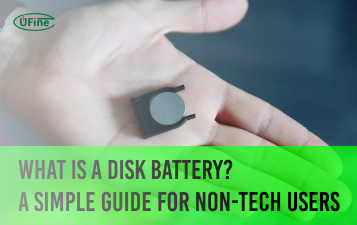
What Is a Disk Battery? A Simple Guide for Non-Tech Users
A disk battery is a small, round cell used in watches, remotes, and other electronic devices. It delivers steady power for compact, low-drain devices.
What Battery Powers a Space Heater?
Discover the type of battery that powers space heaters and learn how to choose the right one for efficient heating in your home or office.
What Is an LR14 Battery? Learn About This C-Size Cell
The LR14 battery, also known as a C battery, delivers steady power. Learn its specs, uses, lifespan, and how it compares to other battery types.
Watch Battery Dimensions Chart: Sizes, Voltages, and Equivalents Explained
Understanding watch battery dimensions helps you choose the right size, voltage, and equivalent model to keep your watch running safely and smoothly.
How Long Can You Rely on Battery-Powered Generators?
Discover battery generator runtime & lifespan factors. Learn how to maximize performance and choose the right power solution.
